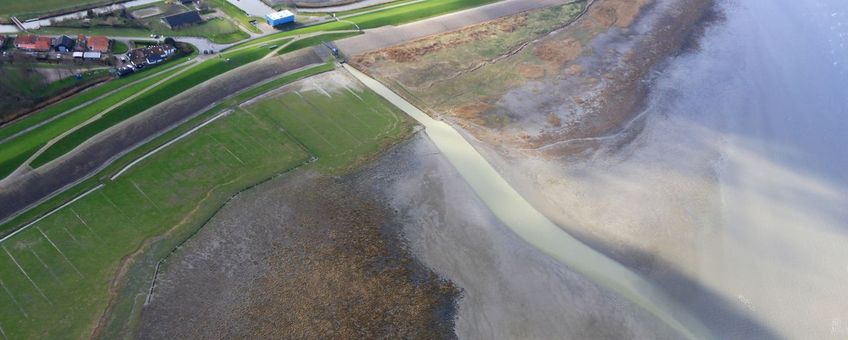
Salt gradient in the Wadden Sea under pressure due to changing climate
NIOZ Royal Netherlands Institute for Sea ResearchProfessor Katja Philippart, director of the Wadden Academy and scientist at the Royal Netherlands Institute for Sea Research (NIOZ), said this at the release of a new chapter of the Wadden Sea Quality Status Report. This chapter on climate change is written by scientists from all three 'Wadden countries', Denmark, Germany and the Netherlands.
Fading gradients
Because late spring and summer periods are getting drier and warmer on average, rivers like the Ems, Elbe and Weser are discharging less water into the Wadden Sea. In the IJsselmeer, the authorities also hold more fresh water in summer, for agriculture and drinking water supply. "This eliminates the natural gradient from a fresh to a marine environment in the Wadden Sea", Philippart says. "In the record-breaking summer of 2018, the waters of Wadden Sea near the Afsluitdijk were even temporarily more saline than those of the North Sea."
Long overlooked
Philippart calls that fading gradient from fresh to marine waters one of the biggest surprises of the new chapter that she and colleagues wrote as part of the Quality Status Report of the Common Wadden Sea Secretariat. "Increasing temperatures and rising sea levels are on everyone's mind now, but that fading salinity gradient is something we have overlooked for a very long time."
Mussels on the gradient
Freshwater contains nutrients (such as phosphate and nitrogen) that are essential for growth of microalgae, the base of the food chain. Riverine waters are also rich in freshwater algae that are grazed by marine bivalves. In the proximity of the discharge sluices of IJsselmeer (see lead photo), for example, densities of mussels and soft-shell clams are relatively high. These shellfish species are predated by birds. "The fading salinity gradient has, therefore, undoubtedly consequences for the rest of the food web", Philippart says.
Better water management
Philippart calls on water managers to take the natural values of the World Heritage Site Wadden Sea into account when deciding on the distribution of fresh water. "To tackle warming and sea level rise, there is only one thing we should do: reduce our greenhouse gas emissions worldwide. Fresh water runoff to the Wadden Sea is, however, something that can be addressed locally as well. More water storage in winter, for example, provides more options for use in drier periods, including discharge to our coastal waters. This might not only be profitable for the natural values of the Wadden Sea, but also beneficial to economic sectors."
Dead shellfish
In addition to the dwindling freshwater supply, the authors note that heat waves are becoming an increasing problem for life in the Wadden Sea as well. "In the extreme summer of 2018, for example, we saw a very high mortality of cockles", Philippart says. "Apart from the heat, this probably also had to do with the decrease in the supply of freshwater algae as a food source for these bivalves."
Shrinking mudflats
A third concern is the enhanced rate of sea level rise. Based upon earlier calculations, mudflats south of the island of Vlieland would start to drown around 2030. Recent findings indicate, however, that the rate of the sea level rise is much higher than previously thought. "These recent observations imply that drowning of the first mudflats may start within the next couple of years", Philippart says.
New research vessel
The publication of this new chapter to the Quality Status Report coincided with the christening of the new research vessel RV Wim Wolff. That vessel will serve in coastal research in the North Sea, the Delta and the Wadden Sea for the next four decades. "The systemwide impacts of heatwaves and summer droughts on the Wadden Sea ecosystem can only be revealed by extensive sampling programs in time and space. You really need a research vessel like the Wim Wolff for that", says Philippart.
Text: NIOZ
Image: Rijkswaterstaat
